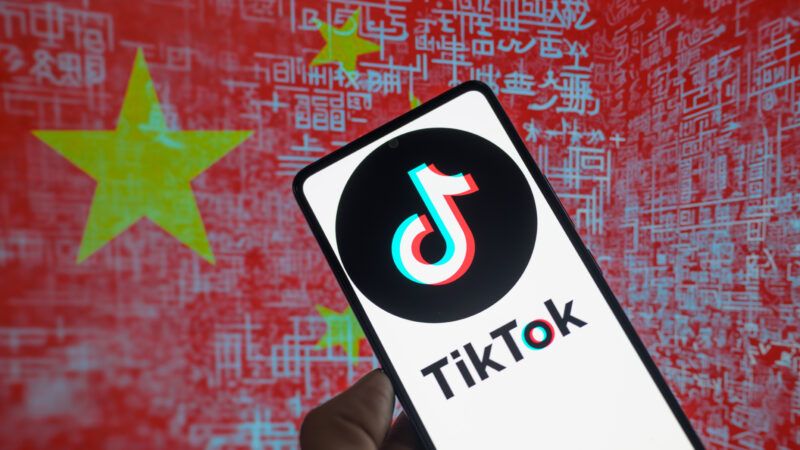SCOTUS Rules in Favor of TikTok Ban as Some Supporters Realize It's a Bad Idea
"I cannot profess the kind of certainty I would like to have about the arguments and record before us," writes Justice Gorsuch.

ByteDance, the Chinese parent company of the popular social media app TikTok, was dealt a defeat by the Supreme Court on Friday. The justices ruled 9–0 that a forced sale of TikTok can proceed. If ByteDance does not agree to sell the app to an American buyer by Sunday, TikTok will be banned on U.S. smartphones.
The justices upheld Congress's forced sale of TikTok, writing in their per curiam opinion that the law is constitutional because it narrowly addresses a national security concern—the Chinese government's acquisition of American users' data—in a speech-neutral way. Even so, the decision expresses some concerns about whether this is actually the case, repeatedly noting that the Court had just a limited time frame to consider the case, which involves the application of cherished First Amendment norms to new technologies.
"As Justice Frankfurter advised 80 years ago in considering the application of established legal rules to the 'totally new problems' raised by the airplane and radio, we should take care not to 'embarrass the future,'" wrote the justices. "That caution is heightened in these cases, given the expedited time allowed for our consideration. Our analysis must be understood to be narrowly focused in light of these circumstances."
Justice Neil Gorsuch's concurring opinion expresses even larger qualms.
"Given just a handful of days after oral argument to issue an opinion, I cannot profess the kind of certainty I would like to have about the arguments and record before us," writes Gorsuch, who also notes that the Chinese government may simply use an alternative social media app to achieve the same results.
Indeed, the news that TikTok may very well go dark this weekend has already prompted millions of users to flee to other platforms, including Xiaohongshu and Lemon8; while it's not clear whether these apps pose the same national security concerns, a migration of U.S. users to them certainly appears to defeat the entire purpose of banning TikTok.
It may have dawned on some in Congress that this course of action represents a massive mistake. Sen. Majority Leader Chuck Schumer (D–N.Y.) now favors pausing the implementation of the ban so that ByteDance can have more time to find an American buyer. (Of course, it remains to be seen whether the company is even willing to sell.) President Joe Biden has said that he will not enforce the ban, given that the incoming administration—President-Elect Donald Trump—no longer supports it. Trump discussed a potential sale of TikTok with Chinese leader Xi Jinping, and TikTok CEO Shou Zi Chew is expected to attend Trump's inauguration on Monday. In the meantime, Biden's stated refusal to enforce the ban means that owners of U.S. smartphone app stores, such as Apple and Google, might decide to leave TikTok alone.
In other words, TikTok's status is very much up in the air. The few consistent, dissenting political figures who considered the banning of TikTok to be an attack on free speech—notably Sen. Rand Paul (R–Ky.) and Rep. Thomas Massie (R–Ky.)—can claim at least a limited tactical victory. However, even the supporters of banning TikTok now realize that this hasty course of action may very well prove counterproductive.


Show Comments (30)